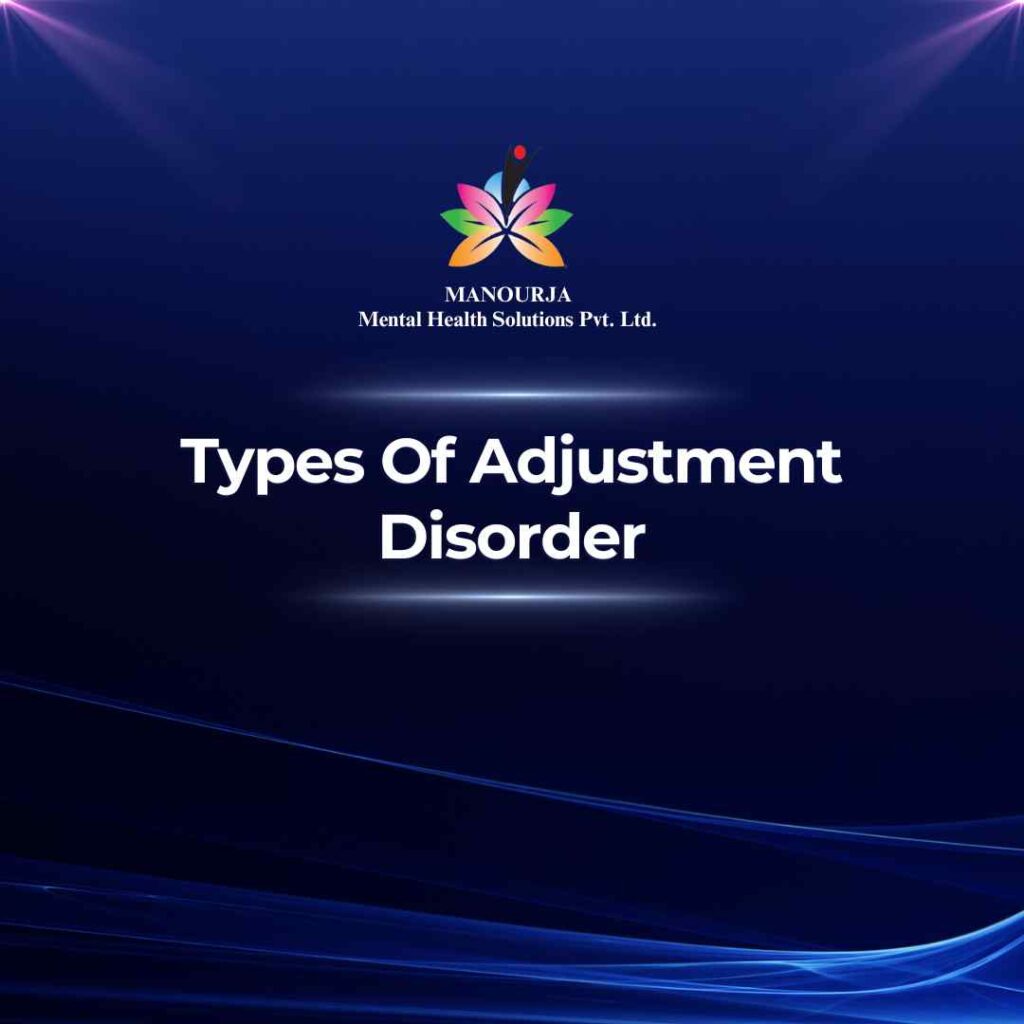Types of Adjustment Disorder

Adjustment Disorder (AD) is a condition that occurs when an individual is unable to adjust to or cope with a significant stressor or life change. This disorder can manifest in a variety of ways, depending on the predominant symptoms. The Diagnostic and Statistical Manual of Mental Disorders, Fifth Edition (DSM-5) categorizes Adjustment Disorders based on the specific emotional and behavioral symptoms that are present.
Here are the main types:
Individuals with this subtype primarily experience symptoms of depression in response to a stressful event. Common symptoms include feelings of hopelessness, sadness, and a lack of enjoyment in activities they used to find pleasurable.
This subtype is characterized by symptoms of anxiety, such as nervousness, worry, jitteriness, or fear of separation from major attachment figures. It is more common in adults, who may experience overwhelming anxiety that impairs their daily functioning.
This type involves both anxiety and depressive symptoms, but neither is predominant enough to be classified on its own. People with this subtype experience a combination of sadness, hopelessness, nervousness, and worry.
In this subtype, the primary features are behavioral issues. Symptoms may include violating societal norms and rules, such as truancy, vandalism, reckless driving, or fighting. This form is more common among younger individuals.
This type includes both emotional symptoms (depression, anxiety) and behavioral symptoms (conduct disturbances). Individuals may exhibit a mix of emotional distress and behavioral excesses or infractions.
Previously known as “Adjustment Disorder with Unspecified Symptoms,” this type is used when the reaction to a stressor does not match the specific criteria of the other subtypes. It includes symptoms such as physical complaints, withdrawal from social situations, or work/school difficulties that do not fit other categories.
Trigger Events
The stressors that can trigger Adjustment Disorder vary widely and can include:
- Personal events such as divorce, relationship breakups, or significant life changes (moving, job loss, retirement).
- Family and social problems, including difficulties in significant relationships, or conflicts with friends or family members.
- Environmental changes, like relocating to a new area or experiencing a disaster.
Treatment
Treatment typically involves psychotherapy aimed at helping the individual develop healthier coping mechanisms. Cognitive-behavioral therapy (CBT), group therapy, family counseling, and other supportive interventions can be effective. In some cases, medication might be used to manage symptoms, but the main focus is usually on psychological and social support.
Understanding the specific type of Adjustment Disorder can help tailor the intervention strategies to better address the individual’s needs and help them navigate through their period of distress more effectively.
At MANOURJA, we believe in the transformative power of counseling. Our experienced therapists offer a safe and supportive space where you can explore your thoughts, emotions, and challenges. Through personalized counselling sessions, we’ll work together to develop coping strategies, build resilience, and achieve lasting positive change. Discover the path to a healthier, happier you with MANOURJA counselling services.
MANOURJA Rehabilitation Services
At MANOURJA, we’re dedicated to helping you in rebuild your life, after difficult times. Our rehabilitation services focus on understanding what you need to move forward, whether you’re recovering from addiction, trauma, or any psychological – social challenges. We create personalized plans, that are all about helping you, regain your strength and find hope again. With a caring team by your side, you’ll have the support to make real progress and take steps toward a brighter, healthier future.
